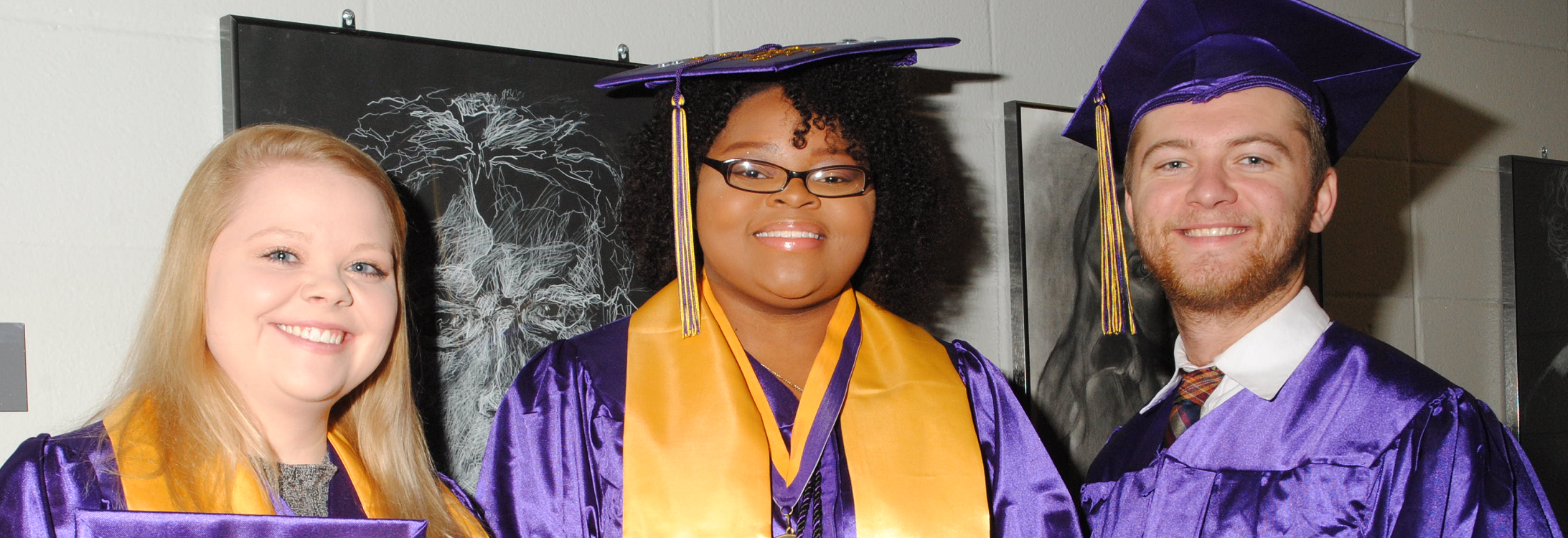Degree Programs
Bachelor of Science in Criminal Justice
The bachelor’s degree four-year plan involves 120 semester hours of core and elective criminal justice and criminology courses that are generally taught in a traditional face to face setting.
BS Criminal Justice Degree Requirements
Accelerated Criminal Justice, BS/ Criminal Justice, MS Program
The Criminal Justice, BS/Criminal Justice, MS accelerated program is designed to allow students interested in graduate school to begin taking graduate level courses as part of their undergraduate coursework. Students can double-count up to 12 semester hours (s.h.) of graduate level course work toward both their BSCJ and the MSCJ. Students accepted into the BS:MS Accelerated program will have the option to waive CRIM 4990: Field Education and Seminar. Students interested in the program should contact Dr. Michele Stacey (staceym@ecu.edu), Graduate Program Director to discuss their eligibility and the application process.
Minor in Criminal Justice
Criminal Justice majors cannot minor in Criminal Justice The minor in Criminal Justice offers students a glimpse into the academic discipline. It may provide students knowledge about the justice system to balance their major. For example, psychology majors and social work majors would benefit greatly since they both address people who engage in deviant and sometimes criminal behavior. Students that may be curious and wish to learn more about the Criminal Justice system may find a minor in Criminal Justice appealing.
Minor in Criminal Law and Legal Process
The criminal law and legal process minor focuses on criminal law, criminal procedure, the judiciary and court process, and critical reasoning. The minor is a natural complement to the criminal justice major, particularly for those students preparing for law school, but would also benefit students in related fields such as history, philosophy, political science, and sociology.
Click here for more information
Minor in Criminology
The Criminology Minor is intended for students interested in advancing their knowledge of crime and offending behavior. The minor is a natural complement for students in related fields such as anthropology, political science, psychology, and sociology. Criminal Justice majors cannot minor in Criminology.
Minor in Forensic Science for Crime Scenes
The department’s minor in forensic science focuses on criminal investigation and crime scene applications. Students work with crime scene scenarios in the field and in the lab to learn the methods for examining criminal evidence such as fingerprints, blood stains, hairs/fibers, firearms/ballistics, tool marks, footprint/tire impressions, and much more. Our crime scene lab is equipped with many of the investigative tools used in modern law enforcement.
Click here for more information
Minor in Forensic Science for Crime Labs
The Forensic Science for Crime Labs Minor is interdisciplinary in nature and focuses on the management of criminal evidence, application of scientific methods, and the analytical skills and techniques used in the analysis and interpretation of physical evidence. The minor is a natural complement to students pursuing degrees in biology, chemistry, and/or biochemistry. The Forensic Science for Crime Labs Minor is intended for students interested in careers in crime laboratories. For further information, the NC State Crime Lab site has useful information on various educational requirements for crime laboratory careers.
International Study
We give students a chance to experience the world first-hand and in the classroom. Through courses in global terrorism, international crime, and comparative criminal justice, our students learn about crime and criminal justice around the world. East Carolina University’s study abroad program lets students experience diverse cultures, visit exotic ports of call, and learn about crime and criminal justice in a foreign country. Previous study abroad opportunities have included semesters at the University of Turku in Finland and Masaryk University in the Czech Republic. Students may also be interested in short-term programs led by ECU faculty, which focus on specific subjects and include course instruction abroad. For more information, please visit the office of Global Affairs.
